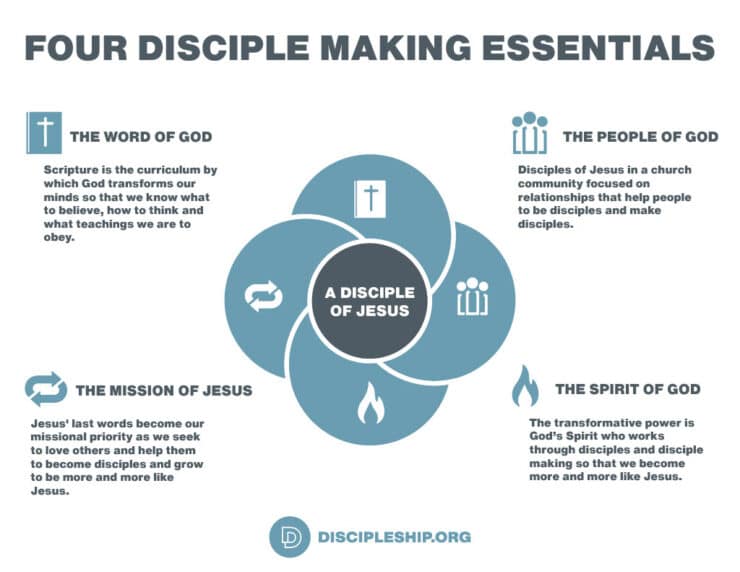HOW?

This past Christmas, we enjoyed the company of my wife’s nephew and his family at our condo in Orlando. As I wrote in a previous article ( WHY? ), the three year old toddler Enzo offered some insights to the question “why.”
A few weeks ago at Easter, they again joined us, this time at our home in Kentucky. If you don’t mind the redundancy, I’d like to share some insights from Enzo this time concerning the question “how.”
As children we grow by experiencing the world around us, observing the adults in our family, and asking a lot of questions. Why, what, and how are among the most often asked, sometimes to the point of frustration; but we understand this is how little children learn.
This time, I noticed that Enzo’s questions had, in many cases, moved beyond what and why. His parents and others had answered those questions over and over, I’m sure. Knowing what to do or why not to do something was already in his mind. Now he’d have to begin to make what they called “red” or “green” decisions. You can imagine which ones led to trouble and which to reward.
One evening when a board game was introduced, Enzo wanted to play. The game was a bit beyond his grasp, but I told him he could play with me. Sitting on my lap, we made choices as to where to place our markers with a goal of getting five in a row. Several times Enzo asked me why we chose that space, but then his question moved to how we could win or how we could block others from winning. It was fun to see how quickly he picked up the basics, then his attention span hit its limits and off he went to some other distraction.
Jesus asked many questions, rhetorically creating opportunities to correct wrong thinking and to instruct and guide. He also answered some questions directly. The New Testament provides a long list of who, what, when, where, why, and how questions directed at our Lord.
-
“Who gave you the authority to teach these things?,” asked by the chief priests and elders in Matthew 21 and Mark 11.
-
The rich young ruler asked a question for the ages: “What shall I do to inherit eternal life?” Luke 18 and Mark 10
-
“Who is my neighbor?” Luke 10, and “Who is the greatest in the kingdom?” Matthew 18, come to mind as two of the greatest questions answered by Jesus.
In Luke 11, the question (asked more in a statement) was “teach us to pray,” or “how should we pray?” Jesus’ answer, “when you pray, pray like this … “ is perhaps one of the most often repeated and least understood passages in the whole of Scripture. Jesus did teach the people how to pray but today this teaching is misunderstood as words to be repeated, not larger concepts of prayer that are the basis of our personal, interactive, ongoing, communicative relationship with our Father from the heavens.
In learning and growing …
-
Why? is important for understanding purpose and motivation.
-
What? is important for providing information and direction.
-
How? is critical for proper implementation and results.
“How” is truly an important question. It’s the one we run into when we’ve already addressed “what” and “why.” In the process of discipleship into Christlikeness, it is a vital question that needs to be answered both for the mature and the new believer. Too often, sadly, we’ve stopped at ‘what’ and ‘why.’ We’ve somehow convinced ourselves that communicating what the gospel is and why a person needs it is sufficient. Here lies a challenge to disciple making. When we believe that the transfer of information is sufficient to bring about the transformation of the heart, we depart from the model that Jesus used as he trained the twelve.
If we want to “make disciples” and to “teach them to observe everything He commanded,” then we absolutely have to address “how” and then put the right answers into motion. This silly notion that all that is required will somehow mysteriously be embedded in our character, passively without practice and effort, is foolish. Both our salvation and our sanctification are the result of grace and faith, but grace is God at work to help us become and do what we could never become or do on our own, and faith is backed up by effort.
How do we become the kind of people who believe like, live like, love like, serve like, and impact the world like our Lord? How do we become people who:
-
Die to ourselves?
-
Seek first the kingdom of God?
-
Walk in the Spirit and not the flesh?
-
Overflow with joy in every circumstance?
-
Love the last, the least, the lost, and the broken?
The answer is found in organizing our lives around the life of Christ, following His instructions in Scripture, and allowing the Holy Spirit to guide and direct our thoughts and actions. Of course this is a life-long journey of walking with Jesus, learning from him how to live and love like him.
In the book, “Learning to Live and Love Like Jesus,” Brandon Cook opens with a critical step often overlooked by the wannabe disciple. We need to start with the right frame of mind. A disciple must first understand the power of their adoption into the family of God and the contrast between “The Human Paradigm” (trying-to-do-the-job-alone) and the “Jesus Paradigm” (depending on the grace of God). Cook leads us to three discipleship questions* to build our daily lives around in *Learning to Live and Love Like Jesus, page 84
-
Jesus, how can you be so good to me?
-
Jesus, how am I doing loving those you have given me to love / my people of peace?
-
Jesus, what are you speaking to me today?
Question #1 – focuses our minds on the amazing grace of God that makes a relationship with him possible in the first place.
Question #2 – reminds us that we are called to love God and through him love others. The great commandment precedes the great commission.
Question #3 – tells us that we are not alone in the great adventure. The disciple is invited into an interactive, personal, daily communicative relationship with the trinitarian God.
From this base of understanding, the disciple can begin to practice the things that lead to life and godliness as Peter described (2 Peter 1). Making every effort to supplement our faith with virtue, knowledge, self-control, steadfastness, godliness, brotherly affection, and love we can practice things like:
-
Making margin a priority in our lives. Space. Unhurriedness.
-
Being still, quiet. Waiting and listening for God to speak to us.
-
Actually practicing Sabbath. Yes, it is beneficial for New Testament believers.
-
Being hospitable. Opening our lives (even homes) to others.
-
Reading Scripture for our own personal growth. Meditating and memorizing.
-
Praying and fasting as the Lord himself modeled for us.
-
Willfully risking misunderstanding as we forgive others.
-
Developing the habit of gratitude.
-
Giving sacrificially of our time, talents, and resources.
-
Cheerfully telling others of the story of God in our lives.
We have been given what we need to follow Jesus. We have been given his Spirit, his Word and his family. We have been given instructions and the power to carry them out in our lives and in our world. The “how” is knowable for the one who intends to obey everything that he commanded. When the student is ready the teacher appears. He’s always been there simply waiting for us to commit to the journey with him.
Remember, this journey can be enjoyed with others. Discipleship takes place in a biblical community. The purpose of the church is to “make disciples,” but that discipleship is for the lost. What we become in the long obedience in the direction of Christ, is one who is truly Christian – a Christ-like one.
The Bonhoeffer Project exists solely to help leaders become disciple makers. Learn more at: thebonhoefferproject.com
This post originally appeared at: How? — The Bonhoeffer Project
If you have enjoyed reading this, please consider joining our email list!











